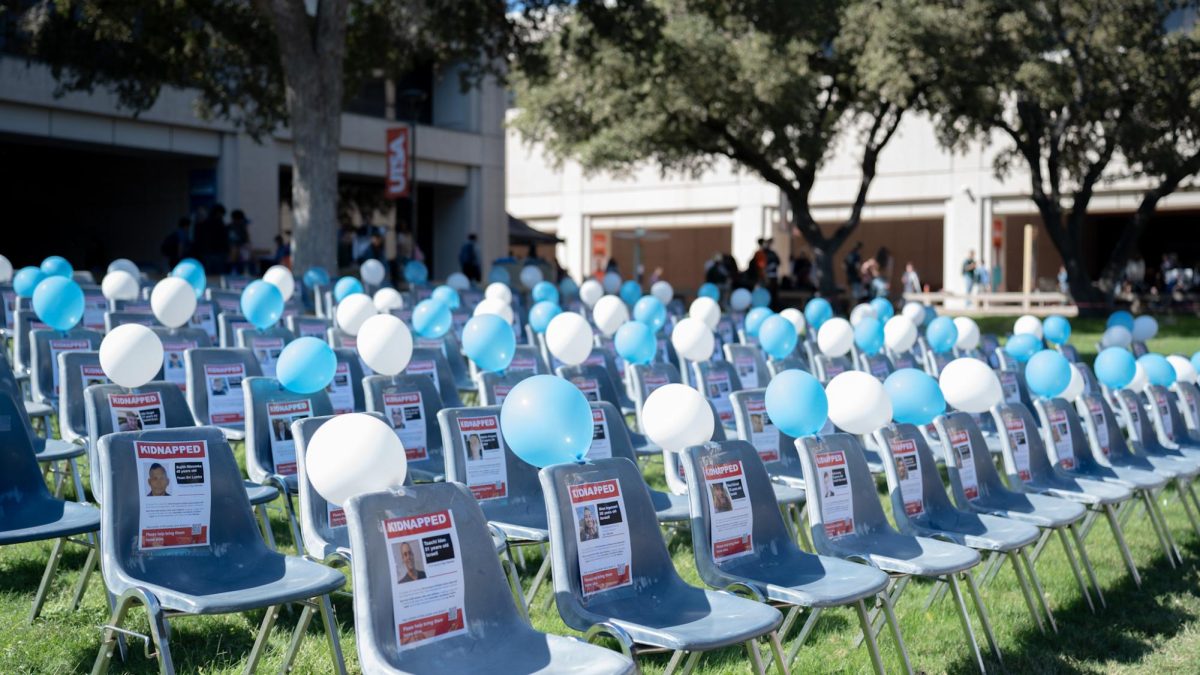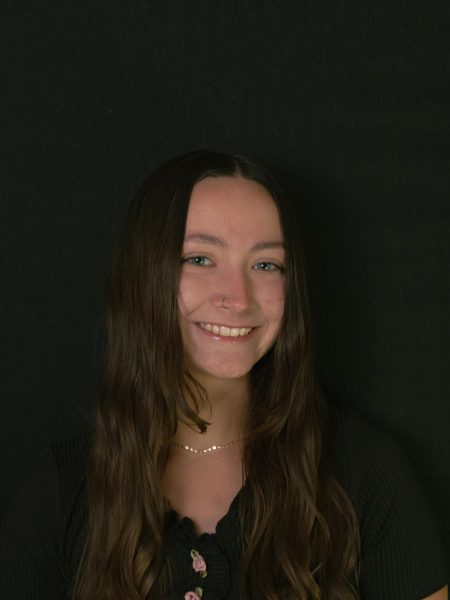On Tuesday, Nov. 14, a display of solidarity in support of the safe return of Israeli hostages was demonstrated in the grass near the Sombrilla. The display, titled “Balloons of Hope,” decorated the grass with 10 rows of empty chairs that each included a balloon and a flier that pictured and identified Israeli hostages as “kidnapped.”
The display was organized by the San Antonio chapter of Hillel, a non-profit Jewish organization that aims to provide students with a space where they can freely explore and express their Judaism. Internationally, Hillel serves 850 colleges and universities in the U.S., Canada and 16 other countries, making it the largest Jewish campus organization in the world.
Students associated with Hillel were in attendance but did not want to be quoted on the display. A representative from Hillel declined to provide a statement on site but provided The Paisano with contact information. The organization did not respond to The Paisano’s attempts to reach out.
Students in support of Palestine voiced their reactions to the display by counter-demonstrating pictures of Palestinian individuals who have been killed in the midst of the Israel-Palestine conflict along the Gaza Strip.
Classics major Kira Sutter voiced their thoughts on the display and whether UTSA has reciprocated by giving students who support Palestine the same platform to exercise their right to demonstrate on campus.
“Not at all,” they said. They also alleged that the organization, Students for Justice in Palestine, was disbanded last semester because of an incident with protesting.
Sutter added that they feel there is not enough clarity from the university regarding what students on campus are allowed to do in terms of protests, demonstrations and tabling.
“On-campus we have a big problem with [the] disparity between what we’re allowed to do and protest versus what just random students are allowed to do. We aren’t allowed amplified sounds, even though [other] people can have music playing at their tables, but because we are protesting, we’re not allowed to do those things.” Sutter also said that the university has not given students wanting to amplify their voices a reason as to why they are not permitted to.
At noon on Thursday, Nov. 16, a “Shut It Down For Palestine Again” event occurred in the Sombrilla, as students walked out of their classes to gather and advocate in support of Palestine, just as they did at the first walkout that occurred on Nov. 6.
Associate Vice President for Strategic Communications and External Affairs Joe Izbrand was in attendance and provided insight into the concerns and confusion students have had about the guidelines surrounding student’s ability to demonstrate, protest and amplify their voices.
Izbrand was asked to clarify why a non-UTSA organization such as Hillel was given the ability to create a display in the Sombrilla.
“The public has the right to assemble on-campus and to be able to express themselves as a public university. So [the university] can have student groups here [and] public groups here. It’s part of their constitutional right to free speech.”
Regarding why student organizations are not allowed to have microphones or speakers to amplify their voices, Izbrand stated, “There are policies that are in place for anybody who comes to campus, and part of the policies are written so that there is no activity that disrupts classes. Amplified sound is not permitted because [it] could disrupt classes. That applies to everybody.”
When asked if the university plans to publish an official statement about the international conflict in Israel and Palestine and how it is affecting students, Izbrand noted that President Eighmy has already released a statement to students addressing the conflict and the university’s desire to continue to foster an environment where every student has the right to express themselves.
“The fact that the President and the administration [have] acknowledged what’s going on in the Middle East is indicative of the closeness by which they pay attention to current events, whether globally or locally, and the needs of students and the support of students,” he said.
Izbrand also mentioned that President Eighmy’s statement included resources for students experiencing any type of emotional distress related to the conflict. The university encourages students to take advantage of these resources.
For more information on the resources provided for students affected by the Israel-Palestine conflict, visit utsa.edu/today/2023/10/.









